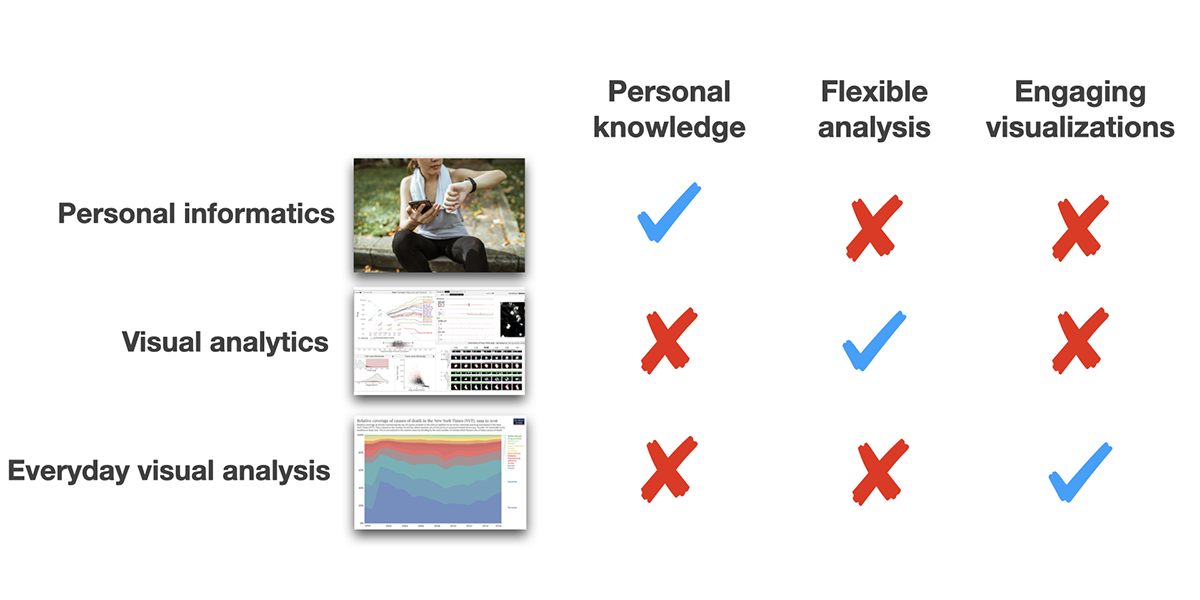Abstract
Personal informatics research helps people track personal data for the purposes of self-reflection and gaining self-knowledge. This field has predominantly focused on the data collection and insight-generation elements of self-tracking, however, with less attention paid to flexible data analysis. As a result, this inattention has led to inflexible analytic pipelines that do not reflect or support the diverse ways people want to engage with their data. This dissertation contributes a review of personal informatics and visualization research literature to expose a gap in research knowledge for designing flexible tools that assist people engaging with and analyzing personal data in personal contexts. This is identified as the personal informatics analysis gap. This dissertation explores this gap through a multiyear longitudinal study of how asthmatics engage with personal air quality data, and reports how this gap emerged through a series of challenges from attempting to design an improved visual analysis tool. This dissertation's primary contribution is the identification of the personal informatics analysis gap, with recommendations for how visualization researchers might bridge it: through designing for play, designing for entry points into personal data, and designing more collaborative or social systems.
Citation
Jimmy Moore
The Personal Informatics Analysis Gap
Advisors: Miriah Meyer, Erik Brunvand, Alex Lex, Jason Wiese, Wes Willett
University of Utah, PhD Thesis, May 2022.
BibTeX
@phdthesis{2022-thesis-moore,
title = {The Personal Informatics Analysis Gap},
author = {Jimmy Moore},
school = {University of Utah},
month = {May},
year = {2022}
}
